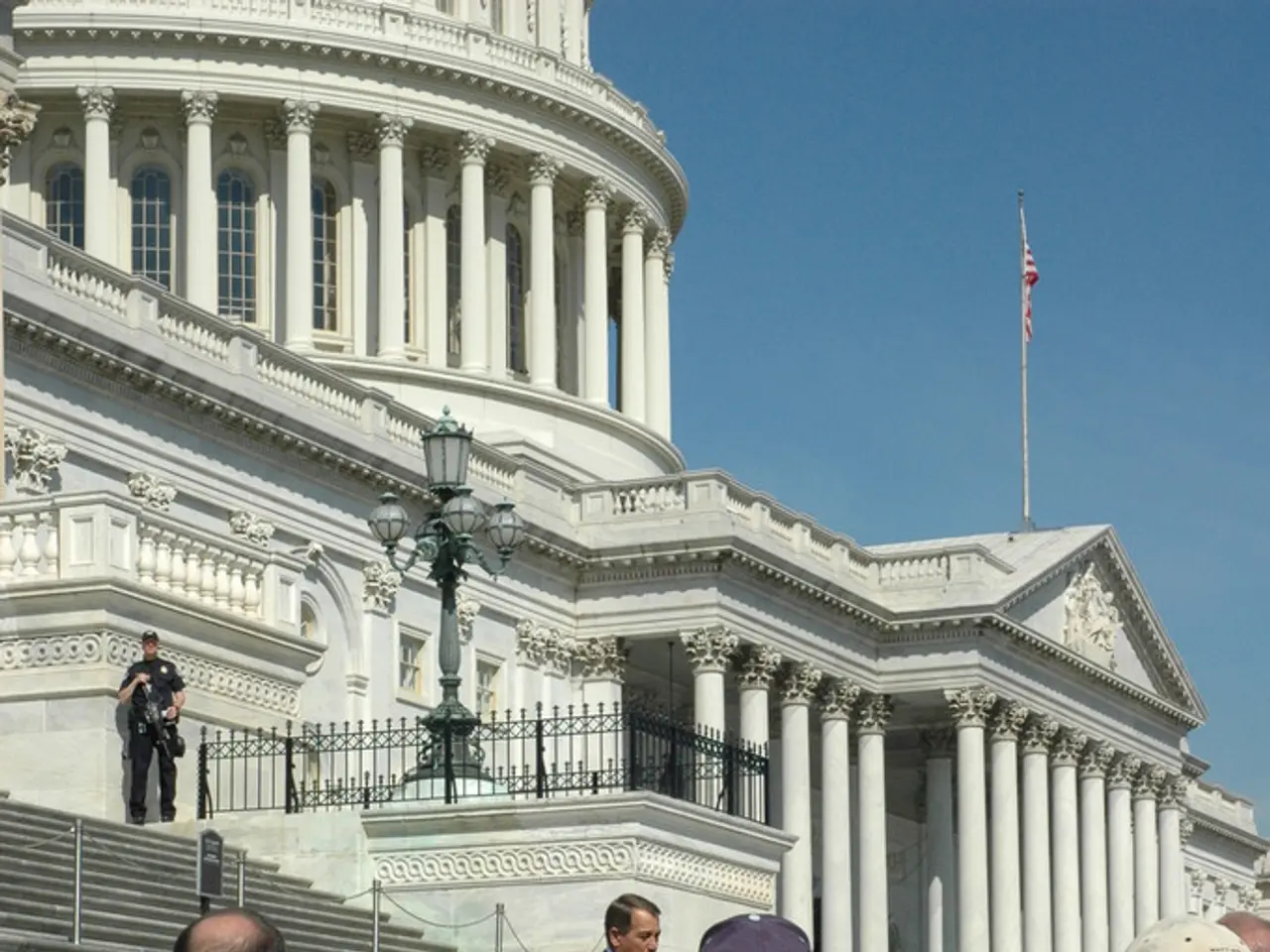Governmental Dissolution of the Constitution Through Political Manipulation
In recent times, the mechanisms of constitutional government in the United States have faced a series of challenges, with the separation of powers, federalism, due process, and the Bill of Rights being eroded in various ways.
One of the most contentious issues is the use of watchlists without due process, elastic "material support" theories, politicized "extremism" labels, and donor targeting. These practices have raised concerns about civil liberties and the potential for abuse of power.
The dismantling of constitutional government did not start with the current administration, but it has accelerated beyond imagining. The administration is deploying Marines and the National Guard into American streets to police protests protected by the First Amendment, a move that has been criticized as a violation of civil rights.
Fiscal responsibility is inverted as surveillance and prison appropriations swell while liberty contracts. U.S. agencies are financing the transfer of migrants to mega-prisons where families and lawyers lose contact with detainees for months. The Eighth Amendment is being mocked by harsh, theatrical detention regimes.
The Fourth and Fifth Amendments have been weakened by AI surveillance and cross-agency fusion that normalize suspicionless tracking. Offshore detention and coerced commitments compromise due process. War powers are skirted by extrajudicial killings abroad.
Dissent is criminalized, expressive conduct is relitigated, and disfavored groups face terror labels and IRS pressure. The First Amendment is facing erosion, with protest being chilled, expressive conduct targeted, opponents threatened with terror labels, and the Executive Branch expanding control over the speech ecosystem.
The current administration is accused of political gaslighting, saying one thing while doing the opposite and insisting on the citizenry's trust while dismantling constitutional checks and balances.
Citizens are urged to be vigilant, not trust the government with their privacy, property, finances, or freedoms, and work locally to fortify the "chains of the Constitution." States and cities should decriminalize homelessness and fund housing-first approaches instead of coercive commitments.
In response to these concerns, Congress must codify guardrails against domestic military use, impose bright-line limits on data fusion, prohibit outsourcing detention to abusive regimes, reassert war powers, and restore fiscal sanity. The administration's encroachment on independent agencies, such as the Federal Reserve, pressing an aggressive unitary-executive theory, also needs to be addressed.
The Rutherford Institute, an organization represented by authors John and Nisha Whitehead, is advocating for individual rights and civil liberties in the face of these challenges. Their work serves as a beacon of hope in the fight to preserve the Constitution and the principles it represents.
Read also:
- United States tariffs pose a threat to India, necessitating the recruitment of adept negotiators or strategists, similar to those who had influenced Trump's decisions.
- Weekly happenings in the German Federal Parliament (Bundestag)
- Southwest region's most popular posts, accompanied by an inquiry:
- Discussion between Putin and Trump in Alaska could potentially overshadow Ukraine's concerns







